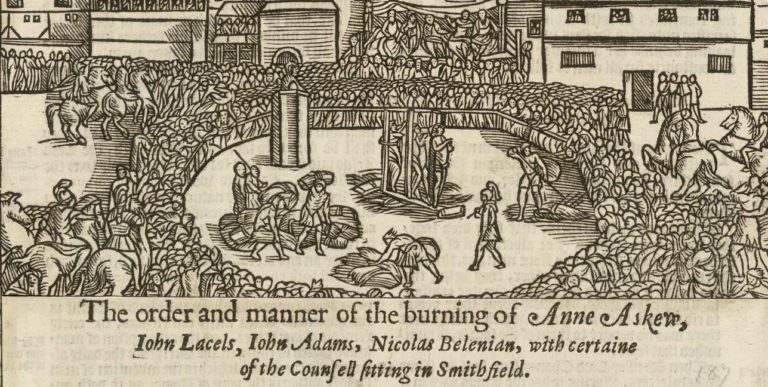I’m an itinerant preacher. Most of my sermons are delivered ‘on the road’. Sometimes I’m given a text or a topic but, more often than not, I’m left to choose. Then it’s usually ‘a golden oldie’. Still, I’m regularly preparing new sermons/talks/lectures.
My regular preaching location is my local church. I preach about twelve times a year. The church is a traditional Anglican church. Given a typical service will include the liturgy, eight musical items and weekly communion, this leaves about 20 minutes for the sermon. That’s what I aim for. Or, 2400 words. I keep a close eye on my word count, as it’s the best indicator of the sermon length.
Generally, we preach through books of the Bible and I fit into the series.
There are three parts to my preparation: reading, writing, and rehearsing.
1. Reading
First, I pray.
Reading is the easiest part of the preparation. Most passages in the Bible are clear. From my experience in coaching preachers many spend too long on the easiest part of the process.
Reading is the easiest part of the preparation. Most passages in the Bible are clear.
I begin my reading early in the week: normally, Monday. I read through the passage again and again, making notes on each verse. I just summarise each verse, largely to ensure that I’ve read the passage carefully. From the start, I’m asking myself, “What’s the big idea?” and “What’s the structure?” I’ll then usually glance at a couple of commentaries. I’ve become increasingly less reliant on them. I read commentaries, in part, just to ensure that I’m on the right track. Normally, the reading takes about two hours.
2. Writing
First, I pray.
I’m a morning person, and so the early hours are my best hours. I need to be mentally fresh for this demanding task. That freshness normally lasts about two hours and then mental fatigue kicks in. I just start writing. I prefer to begin with the introduction (although I may later change it). I already have my structure and the key theme or themes of the passage. Now I have to explain it as faithfully, clearly and engagingly as possible.
I don’t usually work through the passage word by word or (if it’s a long passage) verse by verse. Having established the structure in the passage I’ll usually explain each part of the passage. I don’t want the congregation to lose the big idea and the flow of the passage.
I work with a full text. That doesn’t work for everyone but it’s worked for me for 30 years. It’s a carefully crafted sermon; every single word counts. Since I expect that I have about two hours of mental alertness my goal is to complete half of my first draft that morning. I start about 9.00am and wind up around 11.00am. Occasionally, if I’m ‘in the zone’, I keep on going.
All the while I’m checking and re-checking what I’ve written, asking myself three key questions:
- Is it faithful to the text?
- Is it clear?
- Is it engaging?
The process is then repeated the next morning. I review what I’ve written so far and then pick up where I left off, all the while asking myself the three key questions: faithful, clear, engaging.
So, my hope is to have the first draft completed by mid- or late-morning of my second day of writing. That’s Wednesday or, at the latest, Thursday. On a good week the entire first draft is finished by then. Sometimes, though, the application needs more thought. Applying the sermon in a way that’s faithful to the passage and speaks into the lives of the congregation is the hardest part of the sermon. My usual practise is to apply at the end of the sermon; we’ve heard the exposition, now what’s it mean for our understanding of the gospel and Christian living? I want to end well.
3. Editing
First I pray.
While editing is part of writing, it’s worth a separate section. Too many sermons I hear are unedited. That’s one (of many) reasons I don’t prepare on Saturday. I let my sermon lie for 24 or 36 hours and look at it again with fresh eyes. I rarely need to make serious changes (I’ve been checking and re-checking since I began), but I usually pick up some points that need clarification or reworking. For example, after I’d written last Sunday’s sermon I had misgivings about the wisdom of an illustration. There was a risk some people might think I had them in mind (and, to be honest, I probably did!). I’m glad I changed the illustration.
Too many sermons I hear are unedited. That’s one (of many) reasons I don’t prepare on Saturday. So, by Friday, the sermon is ready. Well, almost.
4. Rehearsing
First I pray.
I’ve been preaching a long time. The more I preach and the more I hear sermons (and I hear lots of them) the more I’m convinced of the importance of delivery. Nothing supplants the importance of what we say, but the clarity and listenability of what we say is greatly impacted by delivery.
So, I rehearse. Usually on Saturday. Usually in the church (just like your music team). I rehearse my sermon out loud twice. I do this for three reasons. First, to work on delivery. Second to enhance memorization of the sermon and so maximise eye contact. Third, when I hear my sermon out loud I hear things I missed in the editing process, or a helpful sentence, thought, or idea comes to mind.
On Sunday morning I’ll also rehearse the sermon another couple of times to make myself as familiar with the manuscript as possible.
Final Thoughts
- From beginning to end, preparing a sermon normally takes me 8-9 hours.
- I find joy in preparing a sermon. There’s enormous satisfaction in crafting a sermon full of
- Biblical truth which God may use to change lives.
- I can be faithful and get the passage ‘right’. I can work hard. I can preach an engaging sermon, and even receive encouraging feedback. But lasting impact depends on the gracious working of God’s Spirit. So, my most important task is to pray. I confess that too often the most important task receives the least time and effort.















